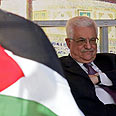
Palestinian President Mahmoud Abbas on Friday issued a decree calling for presidential and parliamentary elections in the West Bank and Gaza Strip on January 24. Hamas rejected the decree, calling it 'unlawful', and suggesting they could hold their own ballot in Gaza, creating two rival presidents, two parliaments and two prime ministers.
Abbas said, "The Palestinian people in Jerusalem, the West Bank and the Gaza Strip are called to take part in the general presidential and parliamentary election on Sunday, January 24, 2010."
He instructed the head of the Central Elections Commission, its members, and all the relevant bodies, to act to carry out the decree, which was issued "in accordance with the 2003 Basic Law and Elections Law No. 1".
Senior Hamas lawmaker, Mushir Al-Masri, said Abbas' election call was "unlawful". He called the decision "a lethal stab at reconciliation efforts".
A Hamas administration in Gaza, who declined to be named, told Reuters his government was now studying the possibility of holding an election in Gaza separately, also on January 24, 2010, to counter what he termed Abbas's "unilateral" move.
Abbas' decision, which was long in the making – particularly since the crisis that followed the publication of the Goldstone Report – comes as a lethal blow to Egyptian mediation efforts aimed at brokering a reconciliation treaty between his Fatah faction and rival Palestinian party Hamas.
The Egyptian's efforts have faced with enough hurdles as it is, after Hamas refused last week to sign a reconciliation treaty.
Abbas has been holding a series of fervent consultations with Palestinian Authority and Fatah officials, as well as with several Arab leaders, including Egyptian President Hosni Mubarak and Arab League Secretary-General Amr Moussa.
During the consultations, Abbas informed the leaders that following the stalemate reached in reconciliation talks, he plans to issue a decree for presidential elections.
The decree indicates that PA sources do not believe reconciliation with Hamas is possible. Nonetheless, PA sources told Ynet that Egypt should continue with its efforts, and if Hamas is willing to sign the Egyptian-brokered deal in its current form, the PA will not object to having elections postponed to June as the document states.
However, the sources were doubtful of Hamas' willingness to reconcile.
Ramallah sources say the Hamas movement had hoped that the storm that broke out following the PA's treatment of the Goldstone Report on Operation Cast Lead in Gaza would end reconciliation efforts.
But the PA retracted its stance and pushed forward with efforts that led the United Nations Human Rights Council to adopt the report, which accuses Israel of war crimes in Gaza. Sources say this move put Hamas in the tight spot of having to sign the Egyptian document as it had committed to do.
Meanwhile, Palestinian organizations are all of the opinion that Friday's decree will only push reconciliation further away.
In response to the decree, Islamic Jihad official Sheikh Nafez Azzam said, "The Palestinian people are anxiously awaiting reconciliation and (Abbas') move only complicates matters. I don't think elections can be held in the Gaza Strip in light of the ongoing division."
Reuters contributed to this report















